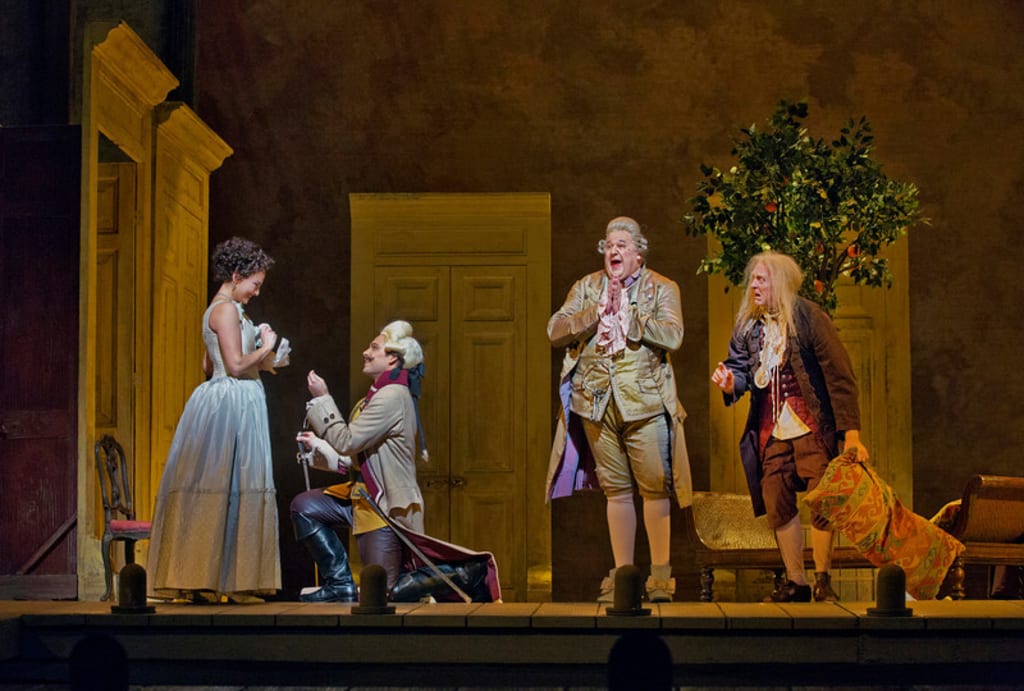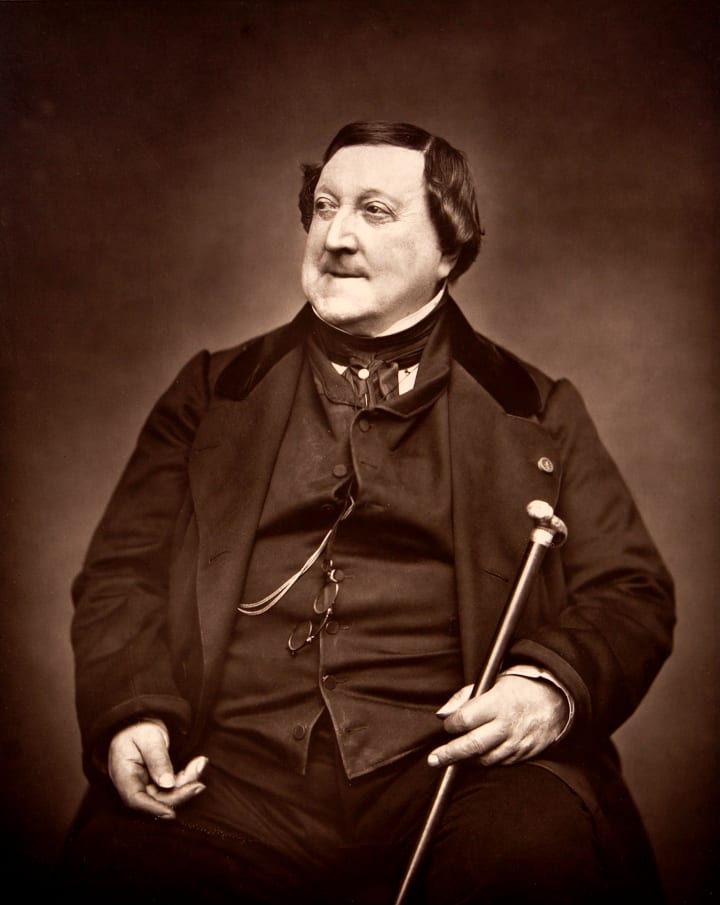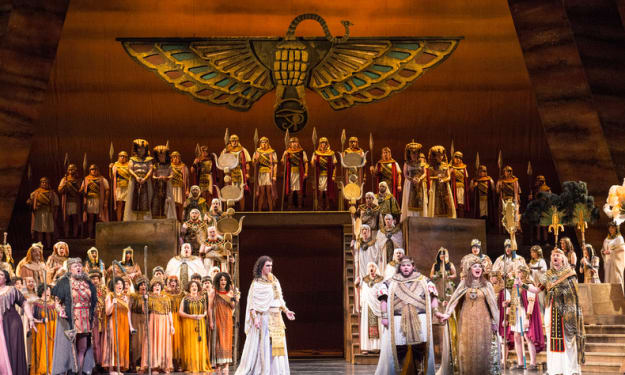The Barber of Seville, by Gioacchino Rossini
A summary of the plot

Gioacchino Rossini was born on 29th February 1792, and thus only had a birthday once every four years! He wrote 40 operas between 1810 and 1829, after which he retired from composing operas for the remaining 39 years of his life before his death on 13th November 1868.
The Barber of Seville is probably Rossini's best-known and most often performed opera. It is also an early example of a "prequel" in that it tells of the events that preceded those of Mozart's "The Marriage of Figaro", which had been first performed almost exactly 30 years before Rossini's masterpiece appeared in February 1816.
Not surprisingly, the two operas have the same source, namely the trilogy of "Figaro" plays by Pierre Beaumarchais (1732-1799). However, whereas Mozart based his opera on the second play, Rossini chose the first. Again not surprisingly, both operas are light pieces of comic nonsense, with brilliant music that captures the mood of romantic dalliance, farcical plot twists, and a happy ending for most of the characters.
Rossini took less than three weeks to write this opera, which is one reason why the music is so fresh and sparkling throughout. However, part of the speed is accounted for by the fact that he chose not to write a new overture, simply re-using one that he had used twice before!

Act 1. Scene 1. A street in Seville
Count Almaviva, who is in love with Rosina, the ward of Dr Bartolo, sings a serenade beneath her balcony. He is found there by Figaro, the town barber who was previously in service to the Count, and is recruited to aid him in his quest. (As he enters, Figaro sings the famous "largo al factotum" to introduce himself and boast of how much in demand he is). Rosina appears on the balcony. She is not unhappy about being wooed by the Count, but she is very unhappy with how she is being treated by Bartolo, who is a tyrant with designs on her property. When she leaves, Figaro suggests that a way to gain access to the house would be for the Count to disguise himself as a soldier, supposedly seeking billets for troops. The Count is happy to pay Figaro for his advice.
Scene 2. In Dr Bartolo's house
Rosina sings of her wish to lead her guardian a merry dance, just as Bartolo enters. He has his own plan for marrying his ward, for which he needs the help of Basilio, the music teacher. When Figaro enters, Rosina hands him a letter to be delivered to the Count, but Bartolo is suspicious of what is going on. Rosina manages to fob him off.
The Count now appears, in the disguise suggested by Figaro, but apparently roaring drunk into the bargain. He is able to slip a letter to Rosina, but this time Bartolo sees a piece of paper in her hand and demands to know what it is. Once again, Rosina is too clever for him and hands him her laundry list instead. An argument begins between Bartolo and the disguised Count, and an officer enters to arrest the latter. Bartolo is convinced that the troublemaker has been safely dealt with, but the Count tells the officer who he really is, and is released.
Act II. The music room of Dr Bartolo's house
Count Almaviva enters in a new disguise, that of singing teacher to Rosina in place of Basilio, who is supposed to be ill. Bartolo is still suspicious, and insists that, during the singing lesson, Figaro gives him a shave in the same room. Basilio himself turns up, but is bribed by the Count to stay silent and leave. The lesson continues, during which the lovers arrange to elope at midnight. Eventually, Bartolo's suspicions reach such a pitch that he decides to get the marriage contract between himself and Rosina drawn up there and then.
With the stage empty, a violent thunderstorm breaks out. Figaro and the Count enter via the balcony, having climbed a ladder. The lovers meet and embrace, with Figaro urging them to hurry down the ladder, as he can hear someone approaching. However, the ladder has disappeared, and the trio are found by Basilio and a notary, who have the marriage contract ready to be signed. Basilio, having been bribed once, is persuaded again by the Count, this time to change the name on the contract and bear witness to the marriage of Rosina and the Count. Figaro is happy to be the other witness.
When Bartolo arrives, having been the person who removed the ladder, he is too late. However, Rosina has no need for money, now being the Countess, and she is happy enough to give Bartolo what he wanted all along, namely her property.
About the Creator
John Welford
I am a retired librarian, having spent most of my career in academic and industrial libraries.
I write on a number of subjects and also write stories as a member of the "Hinckley Scribblers".






Comments
There are no comments for this story
Be the first to respond and start the conversation.